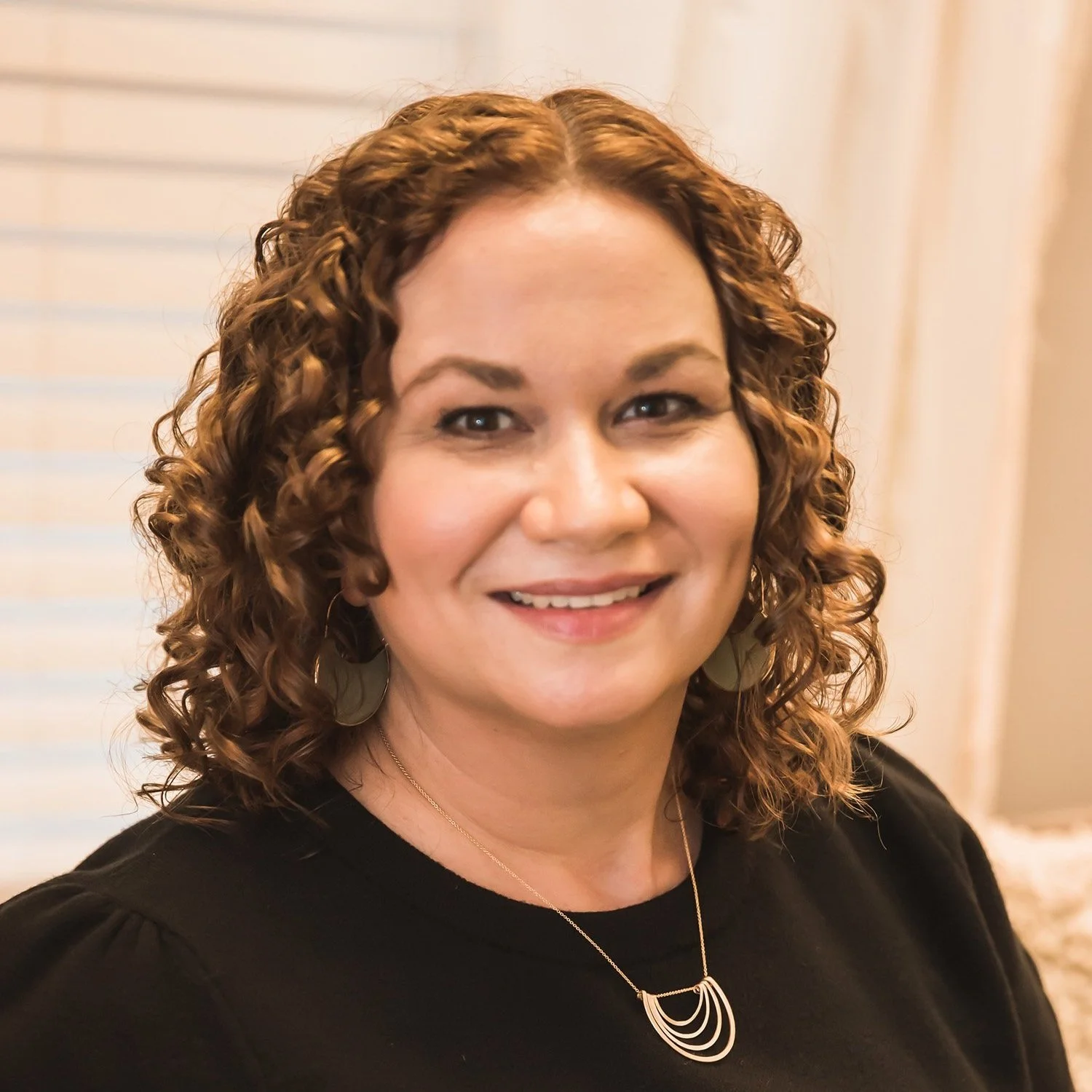Section Styles woo
RAdically open Dialectical Behavior Therapy (ro DBT) for Adults & Adolescents in Atlanta area:
Embrace Openness, Foster Flexibility, Enhance Connection
Discover a new path to emotional balance and meaningful connections with Radically Open Dialectical Behavior Therapy
Do you or a loved one struggle with excessive self-control, inflexibility, hyper-perfectionism, low receptivity, or openness?
This can often be experienced as:
Difficulty in interpersonal relationships
Painful emotions from which you feel there is no escape
Intense emotions that over time lead to a decreased quality of life
Quickly shifting from one emotion to another
Feeling like emotions are controlling your life
Confusion about who you are
Self-injurious or impulsive behaviors
Suicidal Ideation
Our comprehensive RO DBT program is designed to teach long-term, effective coping skills so that clients have the tools they need to change their lives.
What is RO DBT?
Radically Open Dialectical Behavior Therapy (RO DBT) is an evidence-based treatment developed by Dr. Thomas Lynch. It is specifically designed to address disorders characterized by excessive self-control, also known as overcontrol. This includes conditions such as chronic depression, anorexia nervosa, obsessive-compulsive personality disorder (OCPD), and certain anxiety disorders.
Radically Open Dialectical Behavior Therapy (RO DBT) teaches individuals a variety of skills and strategies aimed at reducing excessive self-control and increasing psychological flexibility, emotional expressiveness, and social connectedness.
Depression
Anxiety
Obsessive Compulsive Disorders
Eating Disorders
Self Harm
Suicidal Behavior
Autism Spectrum Disorders
The goals of RO DBT include encouraging openness to new experiences and emotional expressiveness , promoting behavioral flexibility and adaptability, enhancing social signaling skills to improve social connectedness and relationship, and focusing on mindfulness, particularly around being open to the present moment and experiences.
In RO DBT we aim to increase skills such as radical openness, flexible responding, and effective social signaling.
How does RO DBT Work?
We offer a comprehensive and adherent RO DBT program. It is important to note that not everyone needs all of these components, but for certain problems and diagnoses, research supports that a comprehensive approach is essential.
Our fully comprehensive and adherent RO DBT Program consists of:
-
One-on-one sessions with a therapist where clients work on personal issues, apply RO DBT skills to real-life situations, and set goals for behavior change.
-
Radically Open Dialectical Behavior Therapy (RO DBT) teaches individuals a variety of skills and strategies aimed at reducing excessive self-control and increasing psychological flexibility, emotional expressiveness, and social connectedness. Here are the core areas that RO DBT focuses on:
Key Skills and Strategies Taught in RO DBT
Radical Openness:
Embrace New Experiences: Encourages individuals to be open to new experiences and feedback.
Learn from Mistakes: Teaches how to view mistakes as opportunities for growth rather than failures.
Emotional Acceptance: Promotes accepting and experiencing a wide range of emotions rather than suppressing them.
Flexible Responding:
Adaptability: Develops the ability to adapt behavior and thinking in response to changing circumstances.
Reduce Rigidity: Helps individuals break free from rigid routines and perfectionistic tendencies.
Problem-Solving: Enhances problem-solving skills in a flexible and creative manner.
Effective Social Signaling:
Nonverbal Communication: Teaches skills for effective nonverbal communication, such as facial expressions, body language, and eye contact.
Expressiveness: Encourages appropriate emotional expressiveness to build better social connections.
Social Engagement: Enhances abilities to initiate and maintain social interactions and relationships.
Mindfulness:
Present-Moment Awareness: Develops the skill of staying present and aware of current experiences without judgment.
Distress Tolerance: Teaches how to tolerate and manage distressing emotions and situations mindfully.
Self-Enquiry and Self-Reflection:
Curiosity About Self: Encourages curiosity and open-mindedness about one’s own thoughts, emotions, and behaviors.
Self-Understanding: Aims to increase self-awareness and understanding of how overcontrol impacts one’s life.
-
Clients are given homework to practice skills in their daily lives.
-
Regular meetings for therapists to provide support, discuss cases, ensure adherence to the RO DBT model, and improve their skills.
How is RO DBT different from DBT?
Radically Open Dialectical Behavior Therapy (RO DBT) and standard Dialectical Behavior Therapy (DBT) both share a common foundation in dialectical philosophy and mindfulness, but they differ significantly in their target populations, treatment goals, and specific interventions. Traditional DBT is primarily designed for individuals with disorders of emotional under-control that struggle with impulsivity, emotional instability, intense emotional responses, and difficulty regulating emotions.
RO DBT specifically targets individuals with disorders of excessive self-control, such as chronic depression, anorexia nervosa, obsessive-compulsive personality disorder (OCPD), and certain anxiety disorders. These individuals are characterized by perfectionism, emotional inhibition, rigidity, and difficulty with social connectedness.
FAQ
-
RO DBT offers a specialized focus that is tailored for individuals to address overcontrol and promote openness and flexibility, which sets it apart from other more generalized therapeutic modalities.
-
Individual experiences may vary. Research supporting RO DBT indicates that participation involves weekly individual therapy alongside attendance of a weekly RO DBT skills class spanning 30 weeks. Most clients often require a bit more time, so we typically estimate our program duration to be at least 7 to 8 months.
-
The RO DBT class is taught in 30 lessons (one lesson per week). We have broken this up in to five (six week) modules with a week break in between each module. The modules are continuous so you can start at the beginning of any of the 6 weeks modules.
-
Yes, we have several clients who choose to stay with their individual therapist outside of our practice. With that being said, we do require that each client be in weekly individual therapy with their therapist.
-
We absolutely believe in collaboration. We send out emails every module explaining what skills our clients are learning and give an update as well on what we are observing as the group leaders. We welcome updates outside therapists as well and enjoy working in tandem with them.
-
When seeking RO DBT treatment, be sure to ask about your therapists training. The developer of RO DBT, Dr. Thomas Lynch, supervises the official training of RO DBT as the Director of the Radically Open Institue. RO DBT therapists who train through the Radically Open institute complete a series of three levels of training learning the materials written by and approved by Dr. Thomas Lynch.
-
No, we ask that each client commit to completing the full 30 week skills class.
-
You can participate in our RO DBT skills classes without doing individual therapy at our practice, but you must be in weekly individual therapy with a therapist in the community. That being said, during our initial consultation we will assess your needs and recommend a course for treatment or help.
-
Essentially RO DBT is all about social signaling which can be lost via a screen. Each therapist may have different limitations on Telehealth and individual RO DBT therapy. We currently do not offer any RO DBT groups via Telehealth.
-
Fees vary by clinician and are determined by their experience and education level. See below for more information.
-
We do not accept insurance. We can provide a superbill for services which you may be able to use to file for Out-of-Network (OON) reimbursement. Please follow up with your insurance company about OON benefits, deductibles, and reimbursement rates.
Our Team
Group Skills Classes
Learn to build the skills you need for a life worth living in an accepting, supportive, and non-judgmental setting.
Knowledge is a powerful tool, and in DBT skills classes, it becomes the foundation for building a more resilient and balanced life. As part of the fully adherent DBT program our skills classes use the latest information from Dr. Marsha Linehan’s research, including skills from her most recent 2014 skills book.
Group Skills

Fees & Insurance:
We do not accept insurance. We can provide a superbill for services which you may be able use to file for Out-of-Network (OON) reimbursement.
Please follow up with your insurance company about OON benefits, deductibles, and reimbursement rates.
-
Fees vary by clinician and are determined by their experience and education level. Individual therapy fees range from $180–$240 for a 45–50 minute therapy session.
-
Fees vary by clinician and are determined by their experience and education level. Individual therapy fees range from $180–$240 for a 45–50 minute therapy session.
-
Fees range from $180–$260 for a 45–50 minute couples or family therapy session.
-
Adult DBT Skills Class: $720 per 8-week module of the DBT skills group (one year/six modules recommended).
Adolescent DBT Skills Class: $540 per 6-week module of the DBT skills group (one year/eight modules recommended).
Parent/caregiver DBT Skills Class: $810 for 9-week caregiver DBT skills training.
Our Traditional DBT Programs
Adult DBT Program
Adolescent DBT Program

Resources:
We believe that knowledge is the key to living a life worth living.
In the spirit of collaboration and learning, we have put together a comprehensive list of resources.






















